For meat that is cooked to perfection and melts in the mouth, you must try my Slow Roasted Lamb Shoulder. For great flavour, we use garlic and fresh oregano to season the lamb, and we cook it with wedges of onion and fennel, slices of lemon and chicken stock. The result is succulent meat that falls off the bone. No carving skills are required for this dish!
I prepared this for dinner dinner last night and it was absolutely delicious! The lamb was succulent and melts in your mouth flavoured with fresh oregano, garlic, fennel and lemon. It was easy to prepare with my oven doing all the hard work! It’s a winner for me!!
– Carla
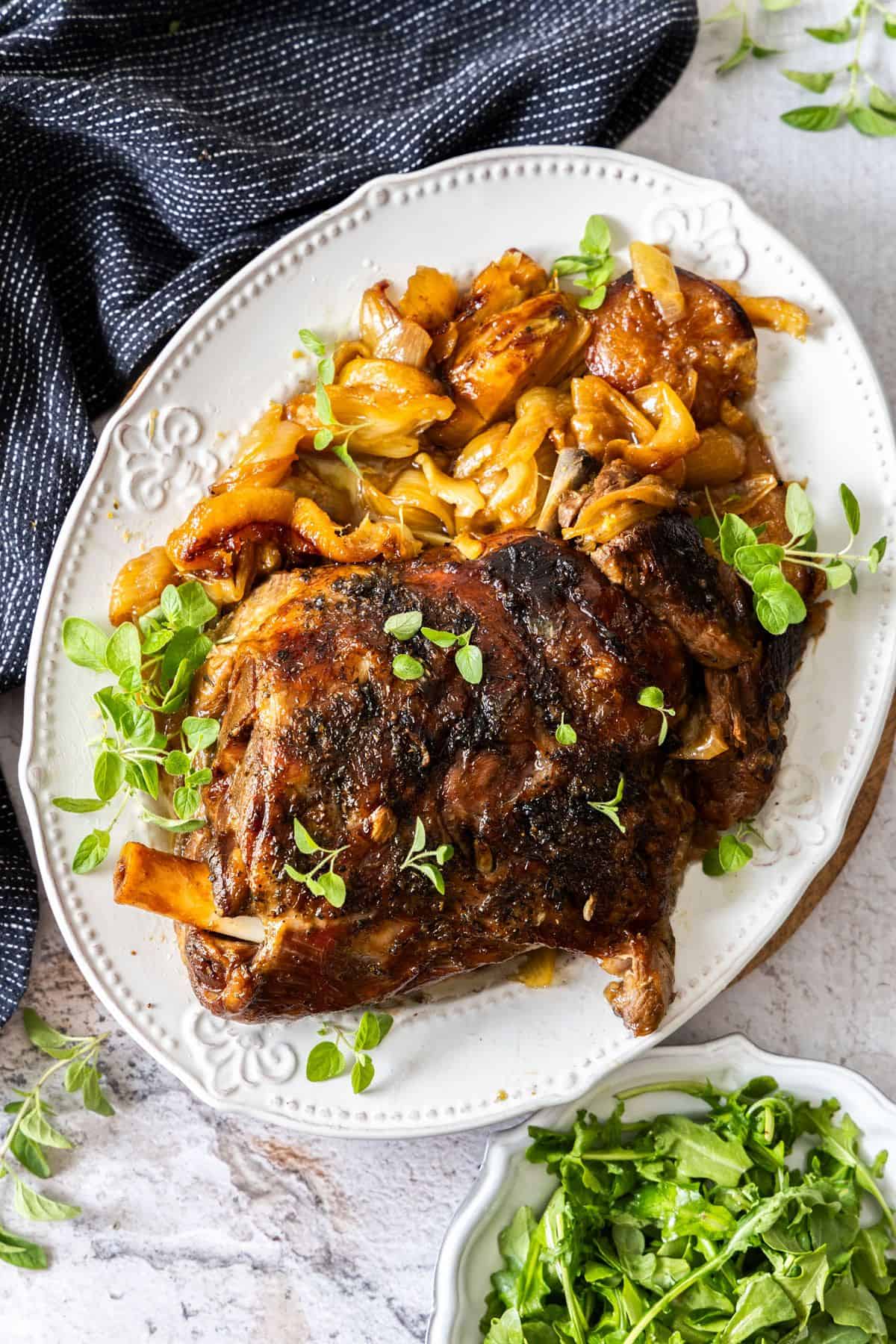
Why You’ll Love This Recipe:
- A Slow Roasted Lamb Shoulder is a guaranteed crowd pleaser, and you will love its versatility. It is sufficiently special to serve at a dinner party, or celebration such as Easter, Thanksgiving or Christmas. However, it also has a relaxed side making it ideal for casual parties.
- If you have not previously cooked with lamb shoulder, this recipe will be a revelation. Minimal effort is required to achieve a fantastic result. The long, slow cooking does the work for you.
- The long, slow cooking ensures that the meat becomes meltingly tender.
- Most of the time the Lamb Shoulder is cooking is hands-free, leaving you to get on with something else.
- It is a perfect dish for cooks of any skill level. The slow cooking virtually ensures success. Just be sure to give it the time that it needs.
- Your home will have the tantalising aroma of a meal that promises to provide the ultimate comfort food.
Recipe Inspiration: this recipe combines some of my favourite flavours and ingredients. Best of all, though, is it is a mostly hands off dish that couldn’t be easier!
Ingredients and Substitutions:
Please see the recipe card further along in the post for exact quantities of ingredients and the full method.
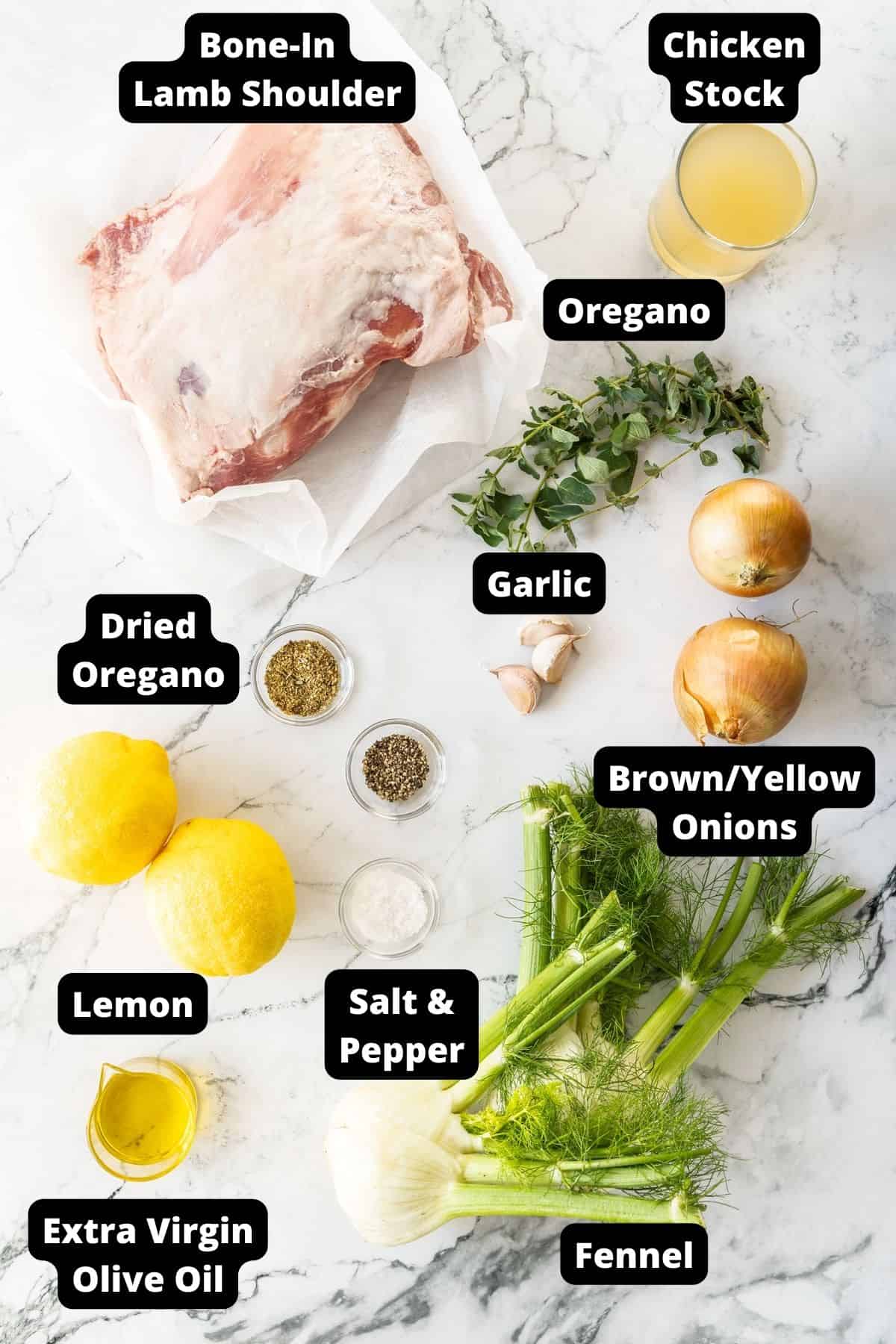
- Lamb shoulder – for superior flavour, we prefer to have the bone in. But don’t worry, you won’t be struggling to cut around the bone as it’s easy to pull it out when cooked.
- Garlic cloves – we use fresh cloves, cut into slivers to insert into the meat. Garlic and lamb have a natural affinity.
- Oregano – we use both fresh and dried. Fresh oregano leaves are inserted into the lamb prior to cooking. Fresh oregano is stronger than dried and able to stand up to the flavoursome lamb. Also, we use some dried oregano sprinkled around the roast.
- Sea salt and freshly ground black pepper – for the best result, it is essential to properly season food.
- Olive oil – I use extra virgin olive oil for the best flavour. Use the best olive oil that you have.
- Brown/yellow onions – this is the most frequently used onion. You can also use white onions.
- Fennel bulbs – lamb and fennel are great companions and this flavour combination is popular in certain areas of the Mediterranean. When roasted, the fennel mellows, it loses its faint anise flavour and becomes deliciously sweet.
- Lemon – the acidity of lemon is perfect to offset the full-flavoured lamb.
- Chicken stock – we pour chicken stock around the lamb to keep the meat juicy and tender.
Variations:
Herbs – use sprigs of rosemary to season the lamb if you prefer.
Chicken stock – if you don’t have chicken stock, you can use beef or vegetable stock.
Vegetables – if you wish, you could add some carrots for extra flavour. However, with the long, slow cook, the vegetables almost melt into the dish. Therefore, I would recommend you add them halfway through the cooking process.
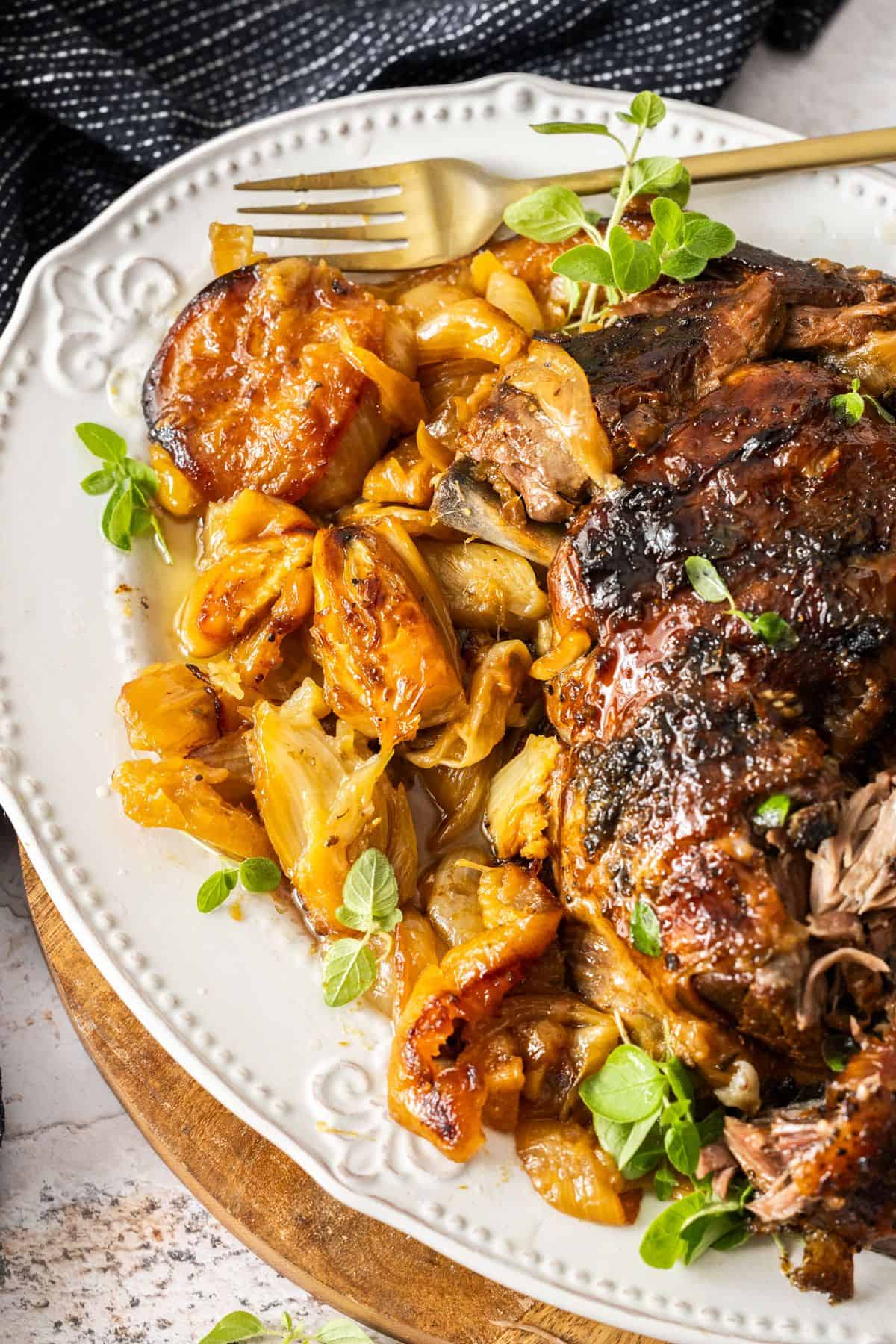
How To Make Slow Roasted Lamb Shoulder:
Please see the recipe card further along in the post for exact quantities of ingredients and the full method.
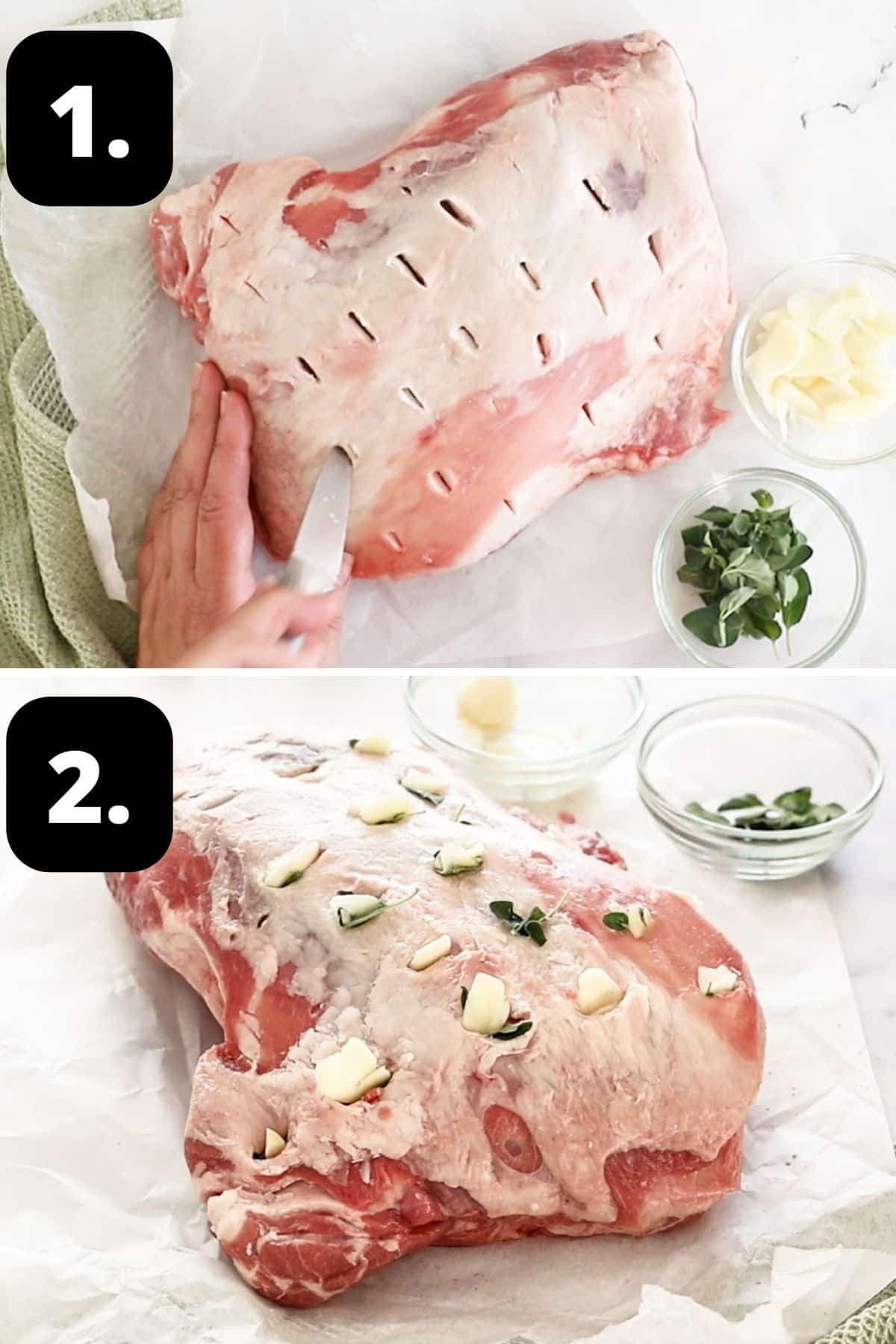
1 – Make cuts in the lamb:
Make a deep insert into the skin side of the lamb at regular intervals.
2 – Fill with garlic and fresh oregano:
Insert a garlic sliver and oregano leaf into each cut.
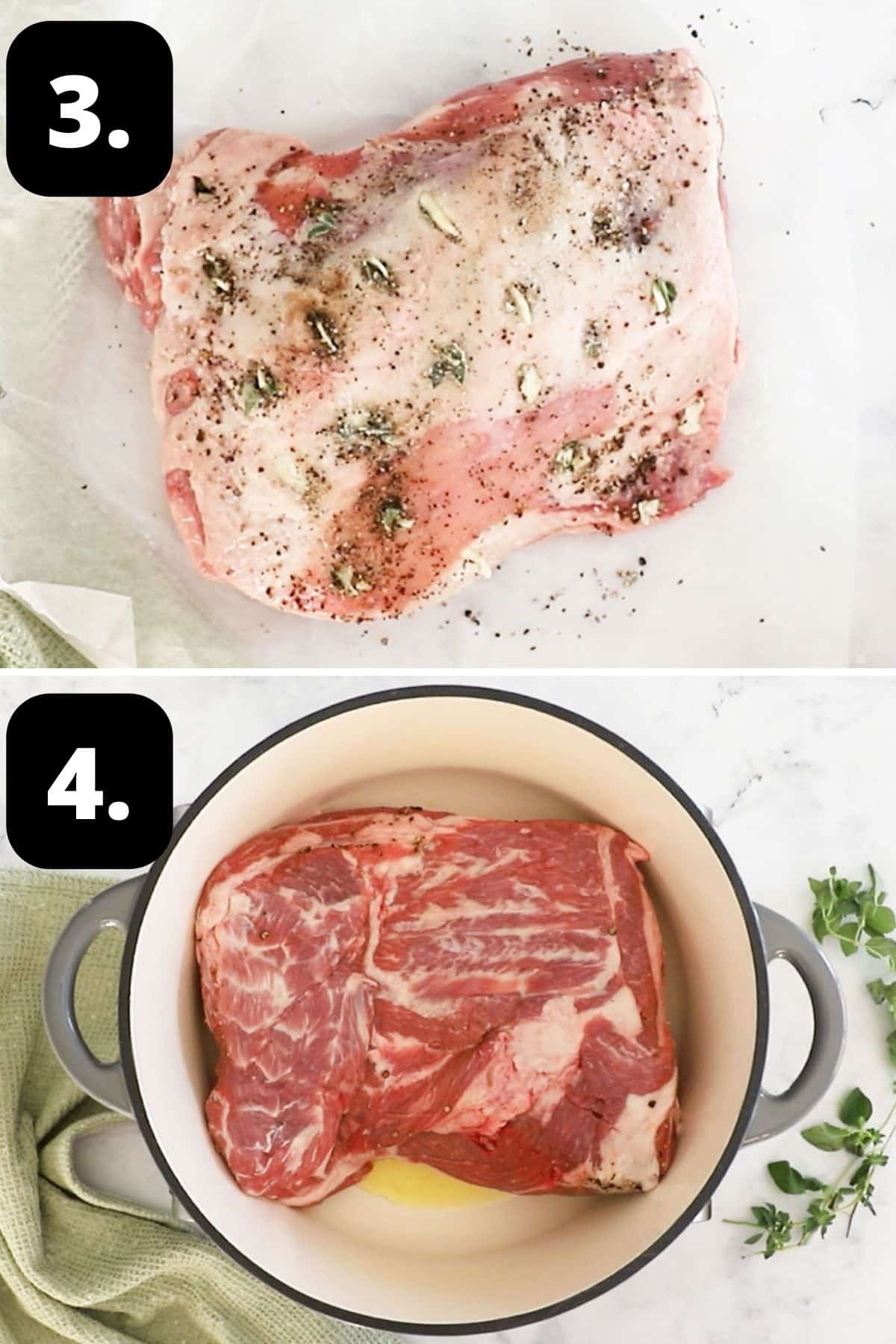
3 – Season the lamb and allow it to stand:
Rub salt and black pepper into the top of the shoulder and set aside for 30 minutes. After this time, pat dry with a paper towel.
4 – Brown the lamb:
Add the lamb to the saucepan and brown both sides.
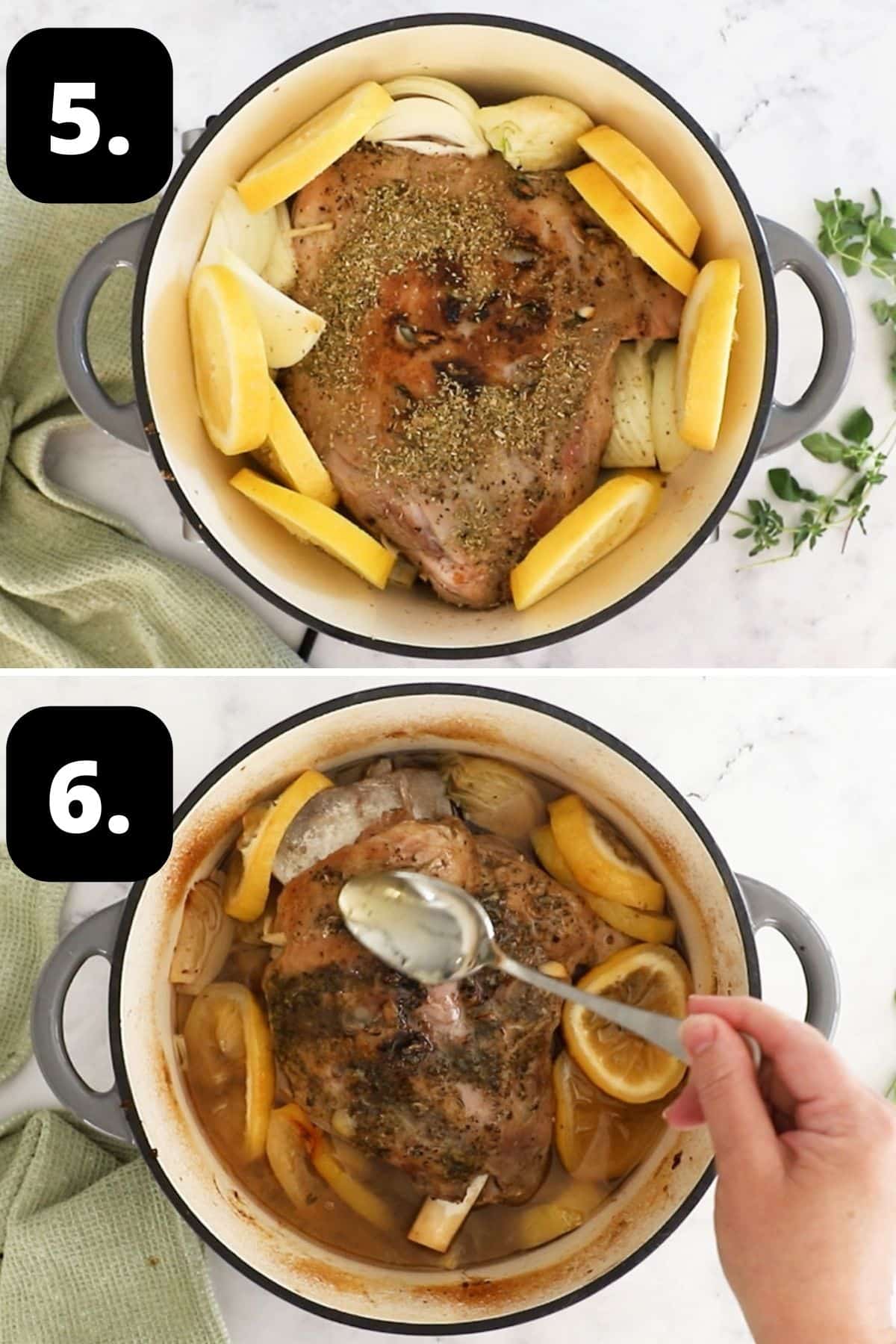
5– Add in your seasonings:
Turn off the heat, add the onion and fennel wedges, lemon slices and place around the lamb. Sprinkle with the dried oregano and pour the chicken stock around the side of the meat. Put the lid on the saucepan and place in the preheated oven.
6 – Basting the lamb:
After about 2 ½ hours, remove from the oven and baste the lamb. Return to the oven for another 2 ½ hours.
Carefully remove the lamb to a warm serving platter.
Hint: the lamb will be very tender and therefore very fragile, so you’ll need to remove it carefully, otherwise it will start to fall apart.
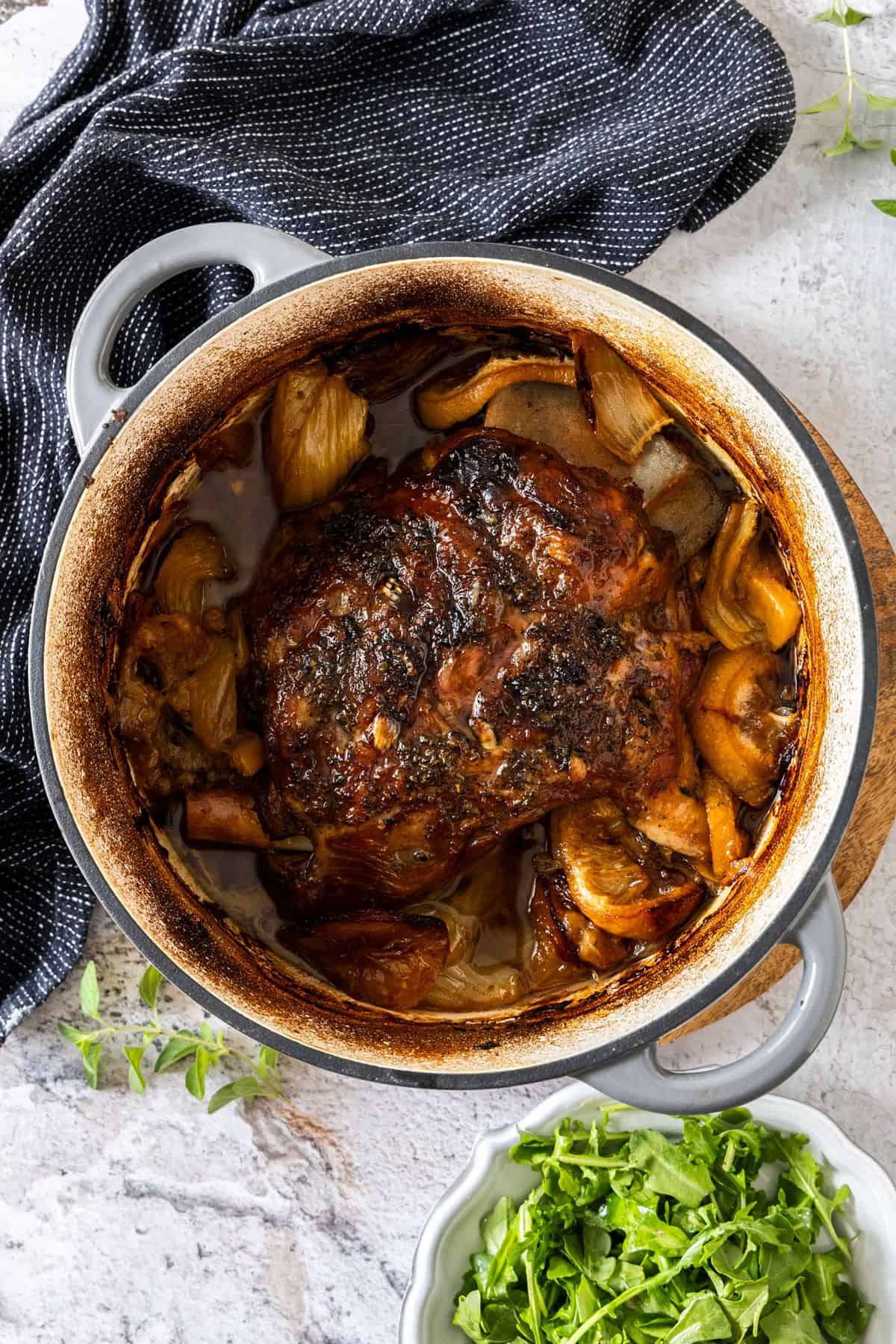
What is the “Maillard Reaction?”
By browning the seasoned outside of the lamb, a chemical reaction, known as the “Maillard reaction” takes place. This is a chemical reaction between the amino acids and the sugars in the meat, changing the colour and developing a deep flavour.
Perhaps without realising, you will have experienced it, in foods such as Roast Chicken that have great flavour and colour added by this reaction. And it’s not just savoury foods; it is this process which browns cakes.
It is not the same as caramelisation, although this can occur simultaneously.
Tips for Success, Storage and FAQs:
This part of the lamb works hard, and consequently has a lot of connective tissue. If not cooked properly, this can be a tough cut of meat. However, it also has a lot of flavour and a generous quantity of fat making it ideal for slow cooking which breaks down the connective tissue and melts the fat, ensuring the meat remains tender and succulent.
It is not essential, but it is preferred. Browning the meat does not take much time but gives the dish a more appetising appearance and the caramelisation of the surface of the meat not only adds colour but tremendous flavour.
The success of this dish lies with low, slow cooking. If you cook the meat at a higher temperature, you run the risk of it being dry and tough instead of meltingly tender.
Cool leftovers as quickly as possible and store in the fridge in an airtight container for up to 3 days. However, for safety reasons, if the lamb has been at room temperature for 2 hours, it should be discarded.
Yes, like my Slow Roasted Leg of Lamb, you can freeze leftovers in a freezer-safe container for up to 2 months. You can gently reheat the lamb using some of the leftover pan juices in the microwave, oven or frying pan. Alternatively, add a small amount of chicken stock or water to keep the flesh moist. It should be heated to register 75 degrees C (165 F) throughout.
Top Tip:
For the best result, bring the lamb to room temperature before cooking. This ensures that the meat cooks more evenly.
For superior flavour, I prefer to cook the shoulder with the bone in. But don’t be concerned about cutting around it, the meat literally falls off the bone.
As always, you will get the best result with good quality produce.
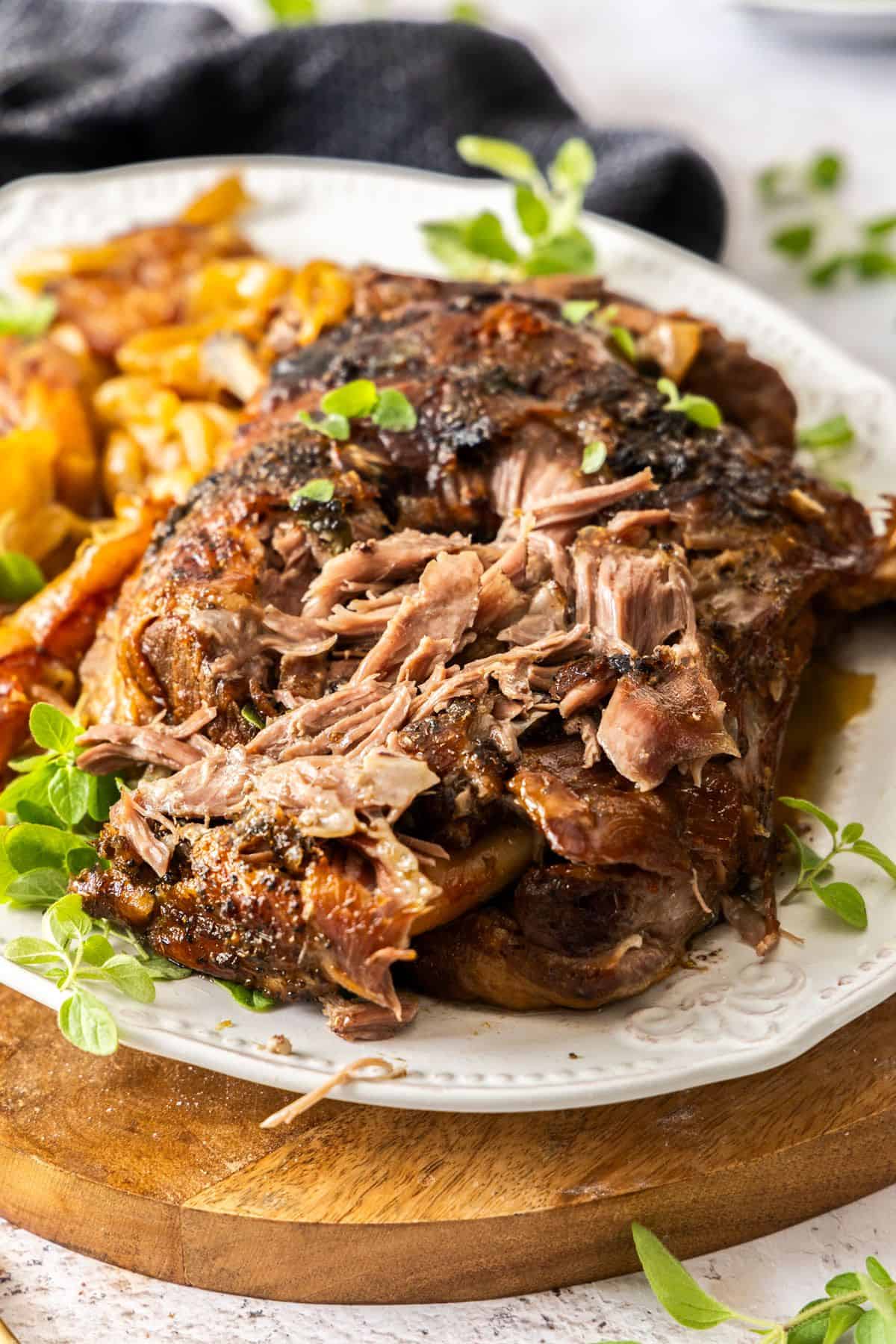
Serving Suggestions:
Slow Roasted Shoulder of Lamb is extremely versatile. Some ways to enjoy it are:
- As a traditional roast accompanied by Crispy Roasted Smashed Potatoes and Mediterranean Roasted Vegetables.
- With a carb such as mashed potato, polenta, rice or pasta to soak up the flavoursome juices.
- Shredded, to serve in a sandwich or burger bun.
- It is ideal for entertaining; set up a buffet with shredded lamb, bread, condiments and side dishes for guests to help themselves.
- Wrap some in pita with our Grilled Zucchini with Yoghurt Sauce.
This very easy method for Slow Roasted Lamb Shoulder is a guaranteed crowd-pleaser. It is a simple one-pot oven dish, yet one that is very special. It is a meal that is both satisfying and comforting. The aroma as the lamb shoulder roasts is warm and inviting, enticing everyone with the pleasure of the meal to come.
Alex xx
More Delicious Recipes For You To Try:
Stay in touch!
Follow me on Facebook, Pinterest, Flipboard and Instagram and subscribe to my newsletter.
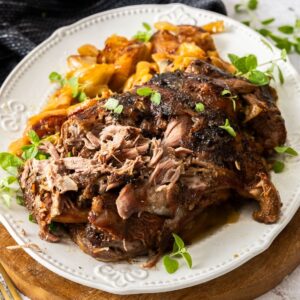
Slow Roasted Lamb Shoulder
Please note:
For accuracy, when weights are provided, we recommend weighing your ingredients. This will produce the best results. All oven temperatures listed are for fan forced.
Ingredients
- 2 kg (4.4 lb) lamb shoulder – bone in See Note 1
- 3 large garlic cloves – cut lengthways into slivers
- 2 stalks fresh oregano – larger leaves are best here. More if necessary See Note 2
- 2 teaspoon sea salt
- 1 teaspoon freshly ground black pepper
- 2 tablespoon extra virgin olive oil See Note 3
- 2 medium brown/yellow onions – cut into thick wedges
- 2 medium fennel bulbs – trim tops and remove outer layers if necessary, then cut into thick wedges
- 2 large lemons – cut into 1 cm (½" slices)
- 2 teaspoon dried oregano
- 1 cup (250 ml) chicken stock – more if necessary during cooking process See Note 4
Instructions
- Remove the lamb shoulder from the fridge. Using a sharp knife, make a deep insert into the skin/fat side of the flesh and insert a large oregano leaf (or several if small) into the flesh along with a garlic sliver. Use the tip of a blunt knife to push them down. Repeat this procedure, leaving a space of about 2.5 cm (1 inch) between.
- Rub the salt and black pepper into the top of the shoulder and set aside at room temperature for 30 minutes. Then, gently pat dry with a paper towel.
- Preheat your oven to 160 degrees C. (320 F)
- In a large, heavy-based Dutch Oven or oven-safe saucepan with a tight-fitting lid, on your stove top, heat the olive oil on medium-high heat. Add the lamb, skin/fat side down, and brown for 3–5 minutes. Turn over and brown the other side for 3–5 minutes.
- Turn off the heat and add the onion, fennel wedges and lemon slices around the lamb. Sprinkle the lamb with the dried oregano and pour the chicken stock around the side of the meat.Put the lid on the saucepan and place in the preheated oven.
- After about 2 ½ hours, carefully remove from the oven and check that there is sufficient liquid – there should be plenty. If there isn't, add a little more stock.Baste the lamb with the juices and return to the oven with the lid on for another 2 ½ hours.
- Carefully remove the lamb from the saucepan onto to a warm serving platter, cover with foil and rest for 20 minutes. (It will be very, very fragile – so ensure it is supported as you lift it out.)Remove the bone- it will be easy to pull straight out.Optional: skim some of the fat from the pan and serve the pan juices over the lamb.
Video
Notes
- Lamb: most of us love a roast dinner, but many are more familiar with roast leg of lamb than shoulder. However, the shoulder is a great alternative. It has more fat than the leg, making it ideal to roast slowly, allowing the fat to melt and keep the meat juicy and flavoursome. The shoulder is a part of the lamb that gets a lot of exercise, and therefore has a great deal of connective tissue which slowly breaks down during cooking. You can’t cook it quickly like you can a leg – it must be cooked slowly at a lower temperature and then becomes so tender that you do not need a knife to carve it, it easily pulls apart with a fork. For the best flavour, we prefer the shoulder with the bone in. After cooking, you don’t need to cut around it, it is easily pulled out.
- Oregano: you could also use fresh rosemary if you prefer.
- Tablespoon: we use a standard Australian tablespoon which is 20 ml (4 teaspoons).
- Stock: it is unlikely you will need to add more liquid, but if you find at the 2 ½ hour mark that it needs more, add a little additional stock to the pan. We recommend using either chicken or vegetable stock.
- Seasoning: adjust the seasoning to your liking – we recommend sea salt and freshly ground black pepper for this recipe.
- Storage: cool leftovers as quickly as possible and store them in the fridge in an airtight container for up to 3 days.
- Reheating: gently reheat the lamb using some of the leftover pan juices in the microwave, oven or frying pan. Alternatively, add a small amount of chicken stock or water to keep the flesh moist. It should be heated to register 75 degrees C/165F throughout.
- Freezing: once cool, place in a freezer-safe container for up to 2 months.
- Servings: will serve 4-6 people, depending on what it is served with.
Nutrition Estimate:
Nutritional Disclaimer:
The nutritional information is an estimate only, and is derived from online calculators. For accurate results, we recommend calculating the nutritional information based on the ingredients and brands you use.

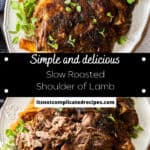
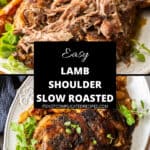

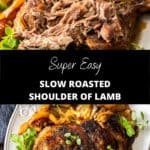
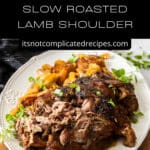
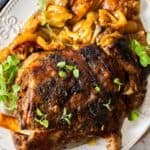
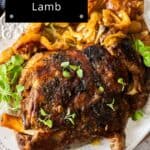
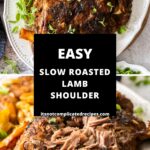
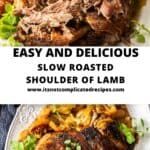
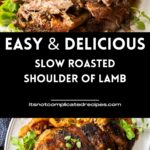
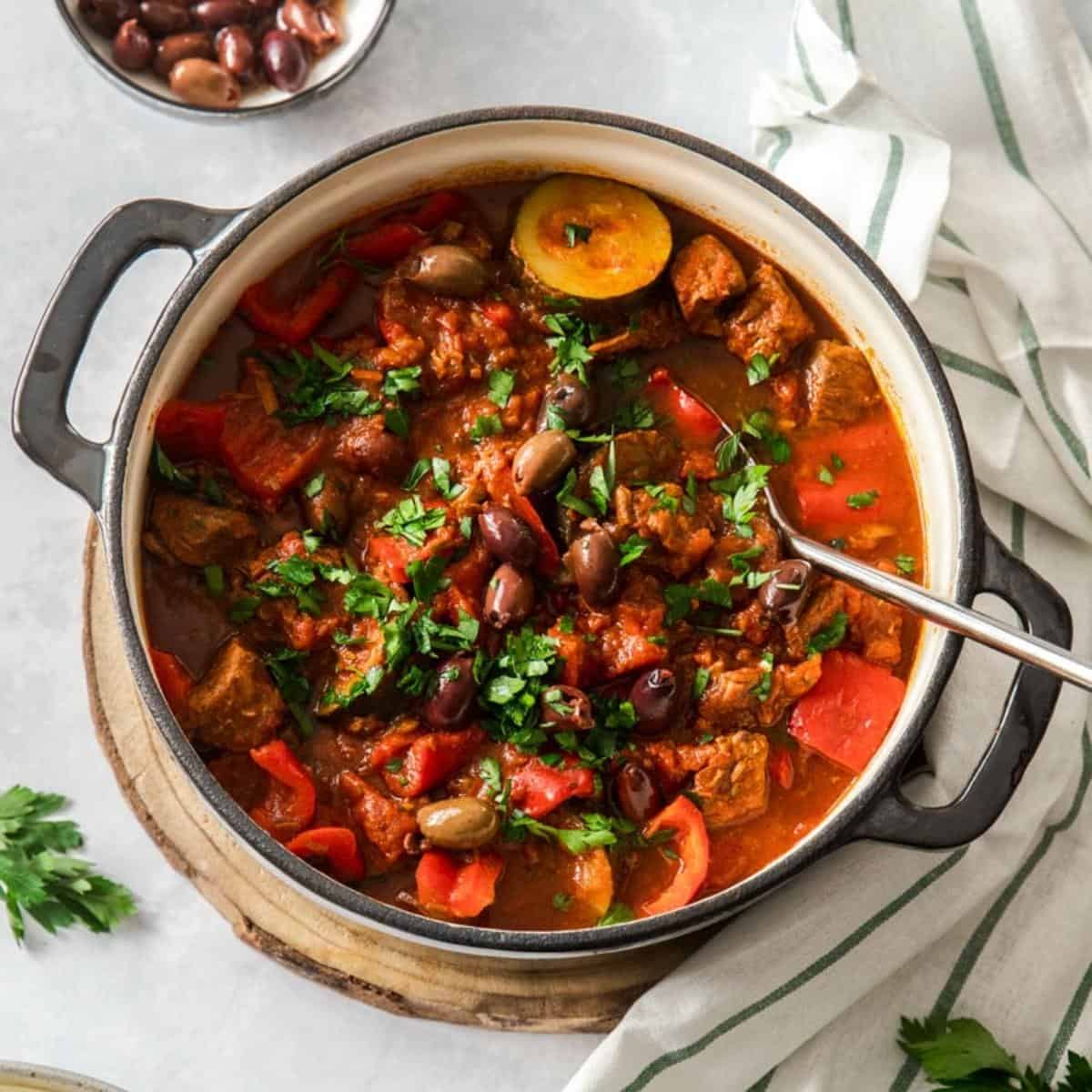
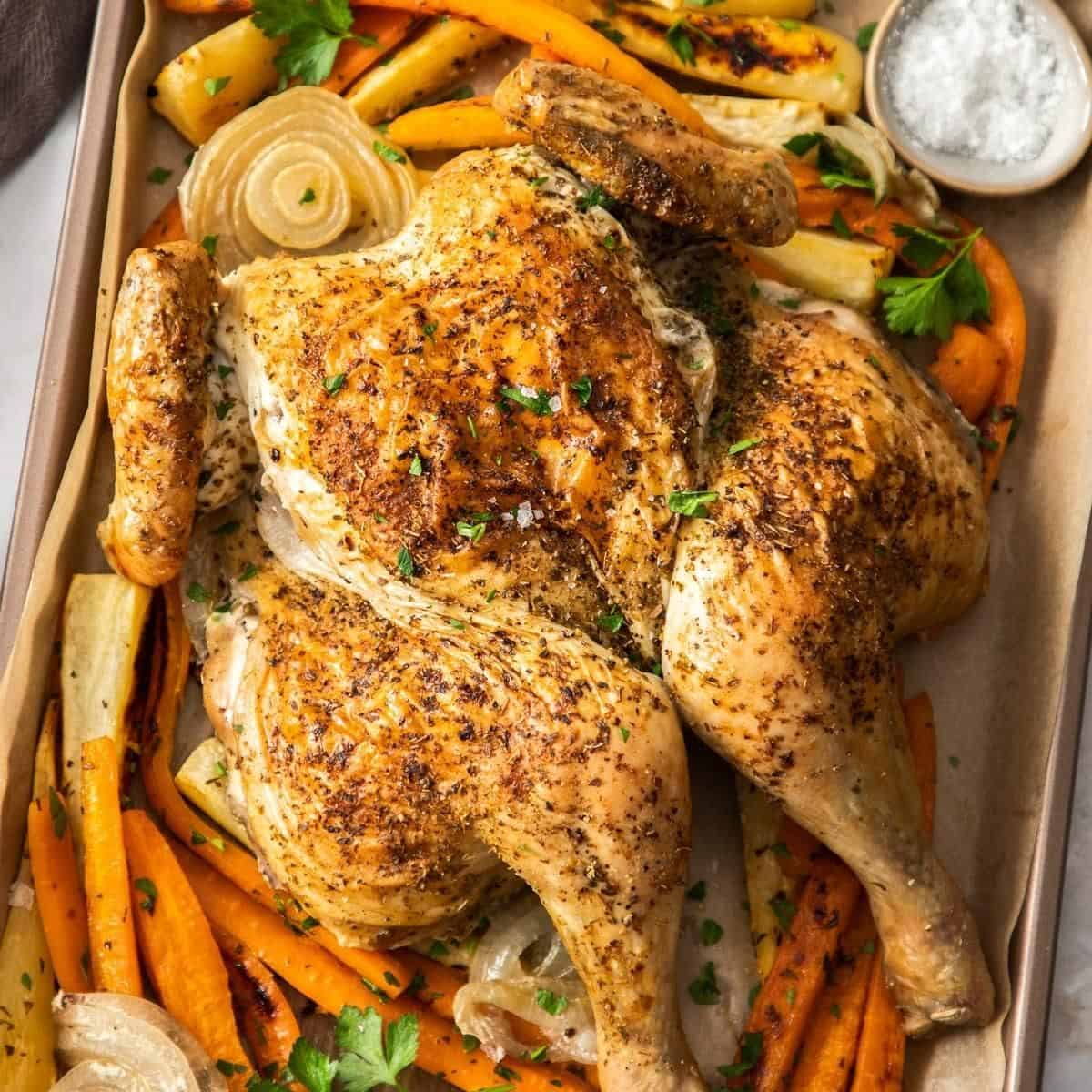
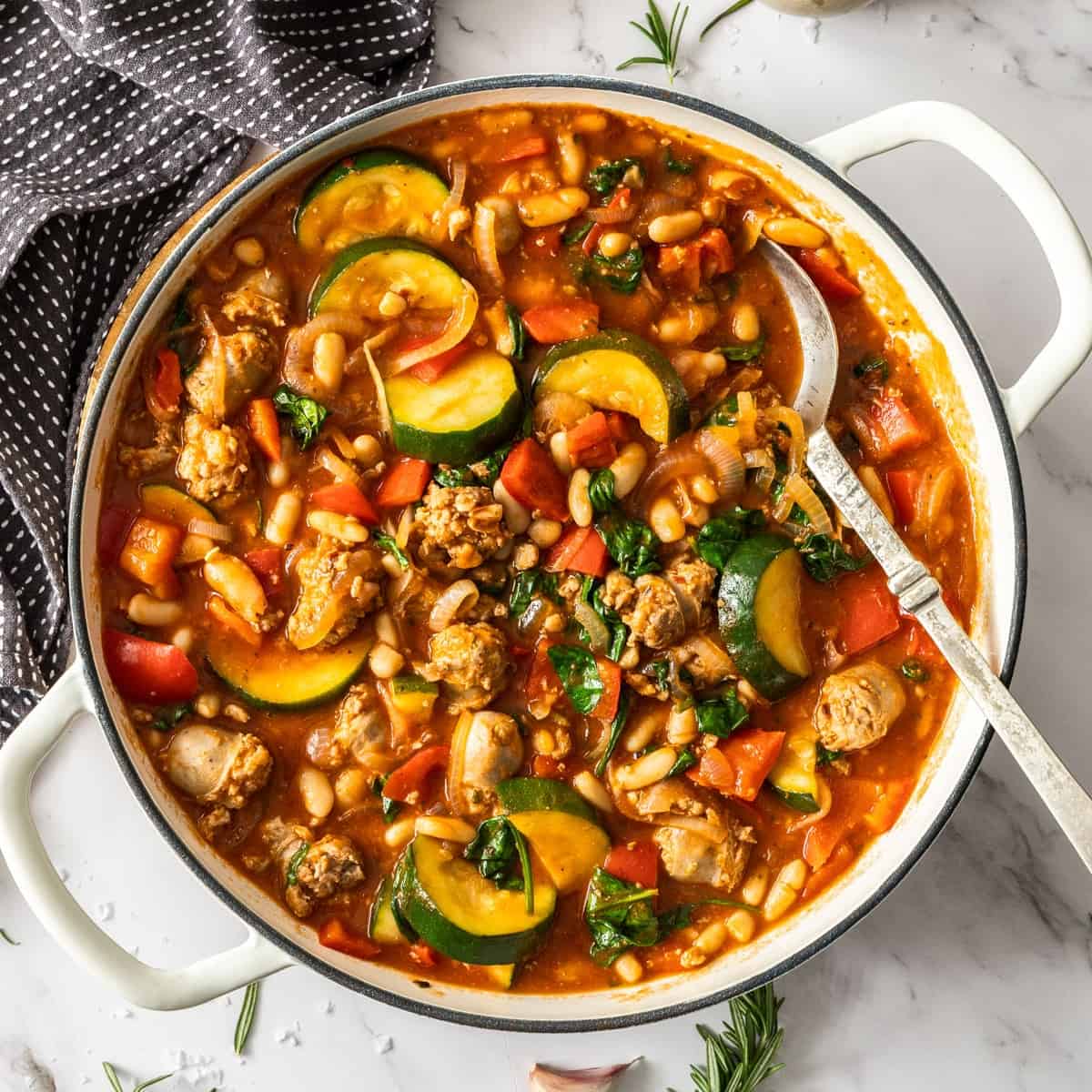
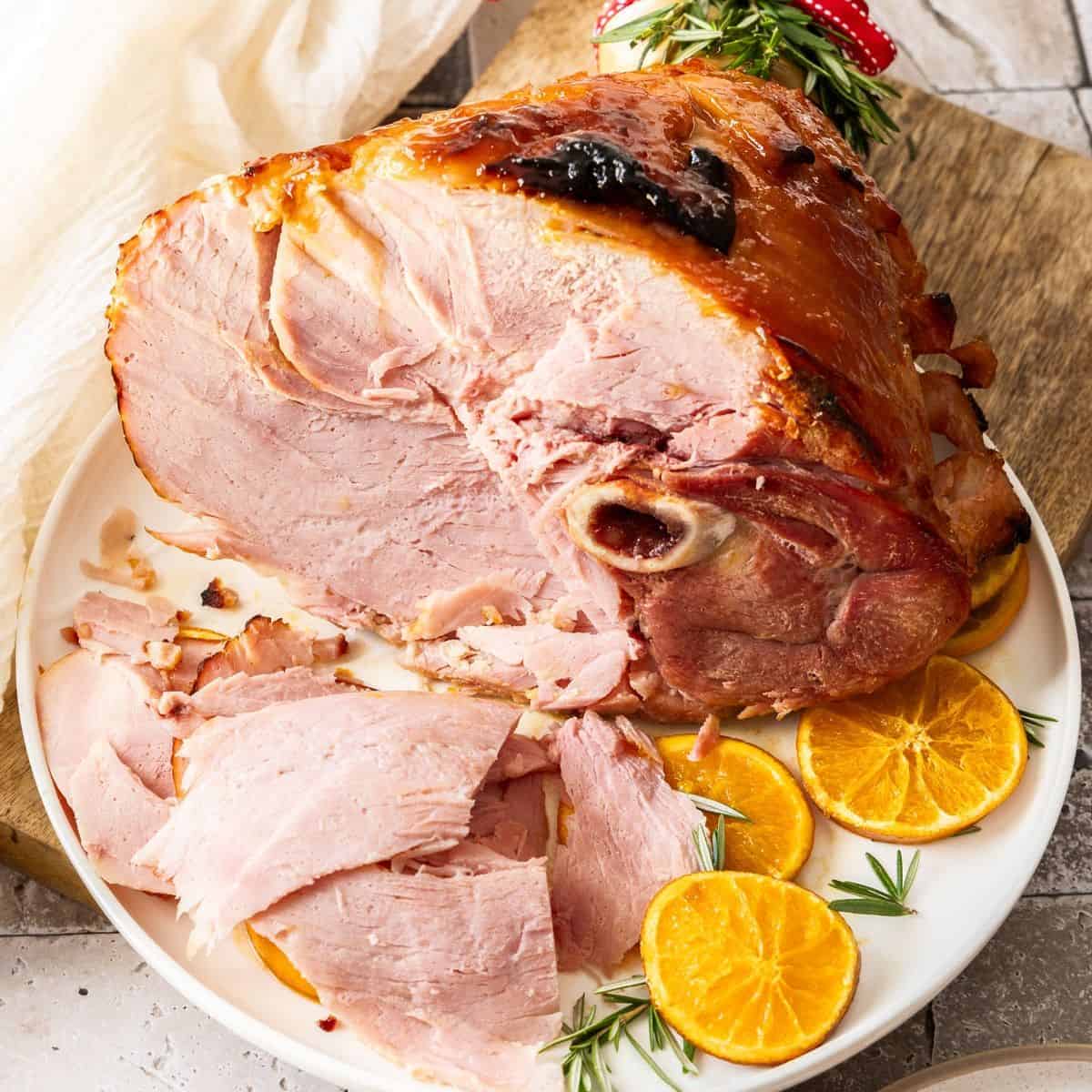
Esther
Thank you for sharing this recipe. Our leg of lamb was amazingly tender, juicy and tasty – the fennel was unbelievably delicious too. We’ll definitely be making this one again.
Alexandra Cook
Lovely to hear, Esther! 🙂
I appreciate you taking the time to leave a comment.
Alex xo
Gerry
Hi Alex, we had this for lunch recently. It was marvelous. Love slow cooked meat. So easy! Simply delicious. x
Alexandra Cook
Love to hear this, Gerry 🙂
Thank you so much, Alex xo
Hazel Ramsay
Definitely a keeper, easy recipe and delicious.
Alexandra Cook
Thank you so much, Hazel!
Alex xo
M
Hello, can this recipe be made in a Dutch oven on the stove top?
Alexandra Cook
Hello M,
Thank you for your question!
That is not something we have tried before, and not something I am sure I could recommend. The oven is ideal for even cooking, and allows us to cook the lamb slowly, resulting in beautiful, tender meat.
If you were to try it on the stovetop, it would need a lot more attention – you’d definitely want it on a very low temperature, and would need to keep an eye on the liquid, as it may evaporate faster. Also, for even cooking, you’d need to move the meat around a few times.
If you were to give it a try on the stovetop, I would be keen to know how you get on, but otherwise, would encourage you to make it in the oven if possible 🙂
If you were hoping to free up your oven for vegetables, or other dishes (with Christmas coming I did wonder!) then you could make it first and keep it warm for an hour – it will keep warm in the Dutch oven during this time, and also reheats very well if necessary.
Alex xo
Cat
I absolutely loved this lamb recipe. Lamb is one of my absolute favorite things, and this is a recipe I will make on repeat. So easy!
Alexandra Cook
Thank you, Cat, for trying this recipe!
I am so happy you enjoyed it 🙂 Alex xo
sarah
I have a big leg of lamb. could i use this and increase cook time?
Alexandra Cook
Hi Sarah!
I have a Slow Roasted Leg of Lamb (linked) recipe you can follow instead 🙂
Thanks, Alex
Molly
This was so delicious and the meat came out cooked so well. We love lamb and the combination of slow cooking with fennel tastes sooooo good 😍
Alexandra Cook
Hello Molly,
Thank you so much for trying our recipe! I am so pleased it was a success and that you enjoyed the delicious taste 🙂
Appreciate you taking the time to comment, Alex xo
Carla Condello
I prepared this for dinner dinner last night and it was absolutely delicious! The lamb was succulent and melts in your mouth flavoured with fresh oregano, garlic, fennel and lemon. It was easy to prepare with my oven doing all the hard work! It’s a winner for me!!
Alexandra Cook
Hello Carla,
Thank you so much for making this recipe, and I am so pleased you enjoyed it!
Appreciate you taking the time to let me know.
Alex xo
David Bunt
This was delicious. The mix of flavours was mouthwatering. I like meat a lot.
Alexandra Cook
Thanks, David! 😀
So happy you enjoyed it xo
Ulrika
Hi, this was delicious☺️Just wondering about the calories…..how do You calculate? Is it 582 calories/ 100 gram or per portion? How many gram is a portion in that case?
Alexandra Cook
Hi Ulrika!
I am so happy you enjoyed the recipe 🙂
Regarding the calories – we use an online calculator that is an estimate only. (Ingredients/brands can vary etc.)
In this case, the calories are an estimate on four serves of the entire recipe. For our recipes, you’ll see the number it serves towards the top of the recipe card.
Alex xo
Marie
AMAZING!!! I cannot explain how much we enjoyed this lamb. It was fall apart tender, so juicy still and we’ve even got some leftovers in the freezer ready for an easy weeknight taco dinner. Oh, and the onions, lemon and fennel are lovely too. They get so soft, sweet and totally unctuous. Thanks for the recipe.
Alexandra Cook
Thank you so much, Marie.
I can’t tell you how delighted I am that you enjoyed this recipe so much.
I really appreciate your comment. Alex xo